'Leadership failure' at baby deaths hospital - MP
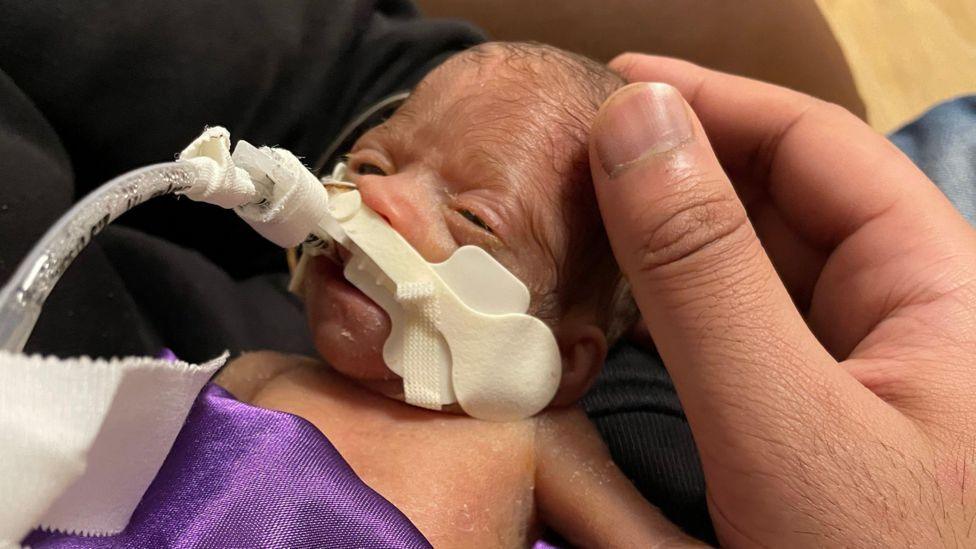
Two-week-old Harris - not his real name - died after being infected with the drug-resistant bacteria Klebsiella pneumoniae
- Published
An MP has said there were "clear failures of leadership" at a hospital where two babies died during a preventable bacterial infection outbreak.
The deaths of two newborn infants at Bradford Royal Infirmary (BRI) were "beyond horrific," said Naz Shah.
The BBC revealed this week that lapses in hygiene had allowed a superbug to spread through the hospital's neonatal intensive care unit in November 2021.
Bradford Teaching Hospitals NHS Trust, which runs the hospital, said it had brought in new infection control measures, staff, and training after the outbreak.
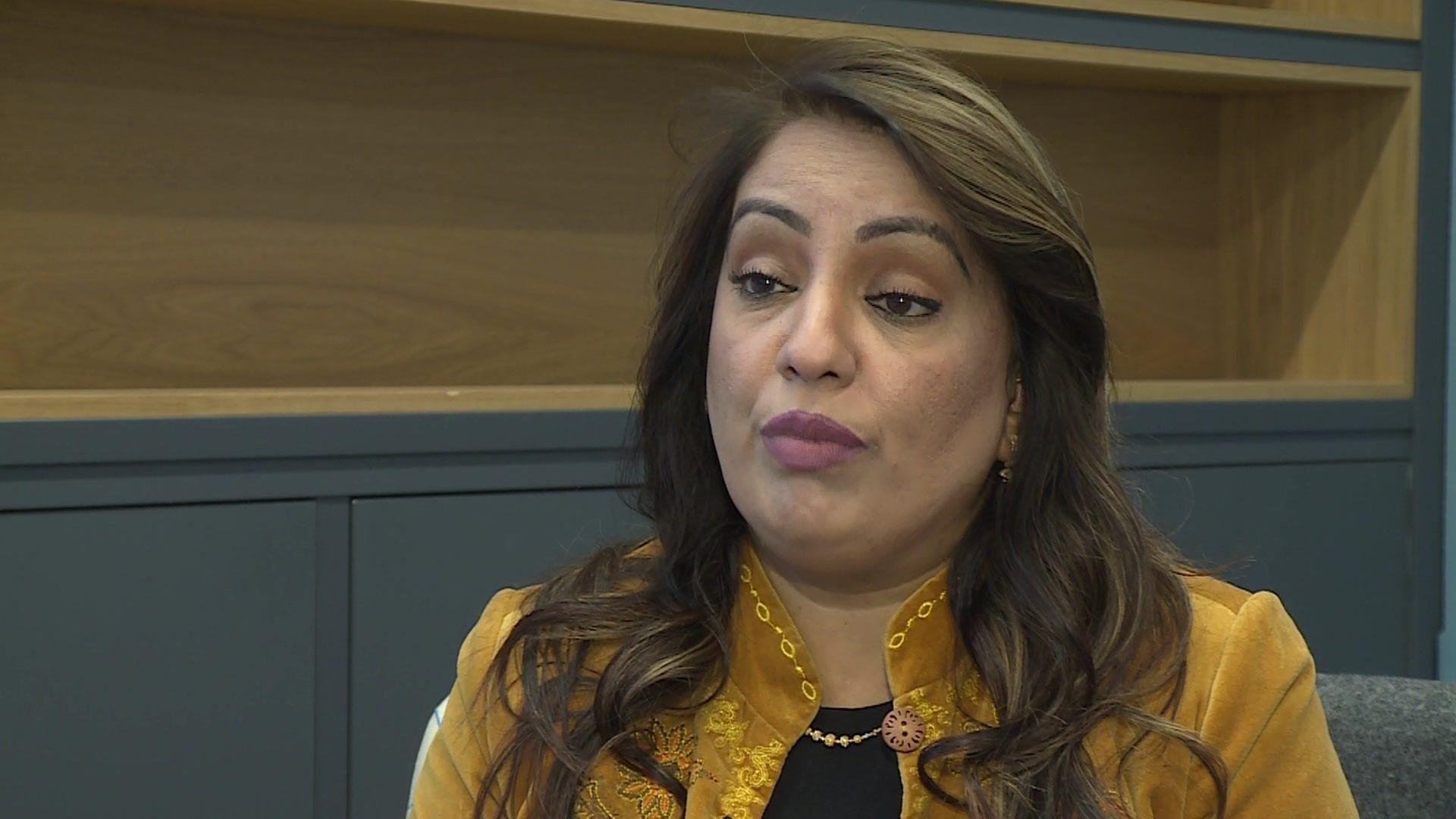
Naz Shah MP said she did not have full confidence in the leadership of Bradford Royal Infirmary
But Ms Shah, the MP for Bradford West, said she did not have confidence in the hospital's leadership.
The Labour politician, who gave birth to her own three children at the hospital, told the BBC: "It is unimaginable, the pain that those parents are going through, but the idea those those deaths could have been prevented.
"There are children that have died and that is a clear failure of leadership."
Ms Shah said she planned to write to the new health secretary Wes Streeting to "make sure this is looked into".
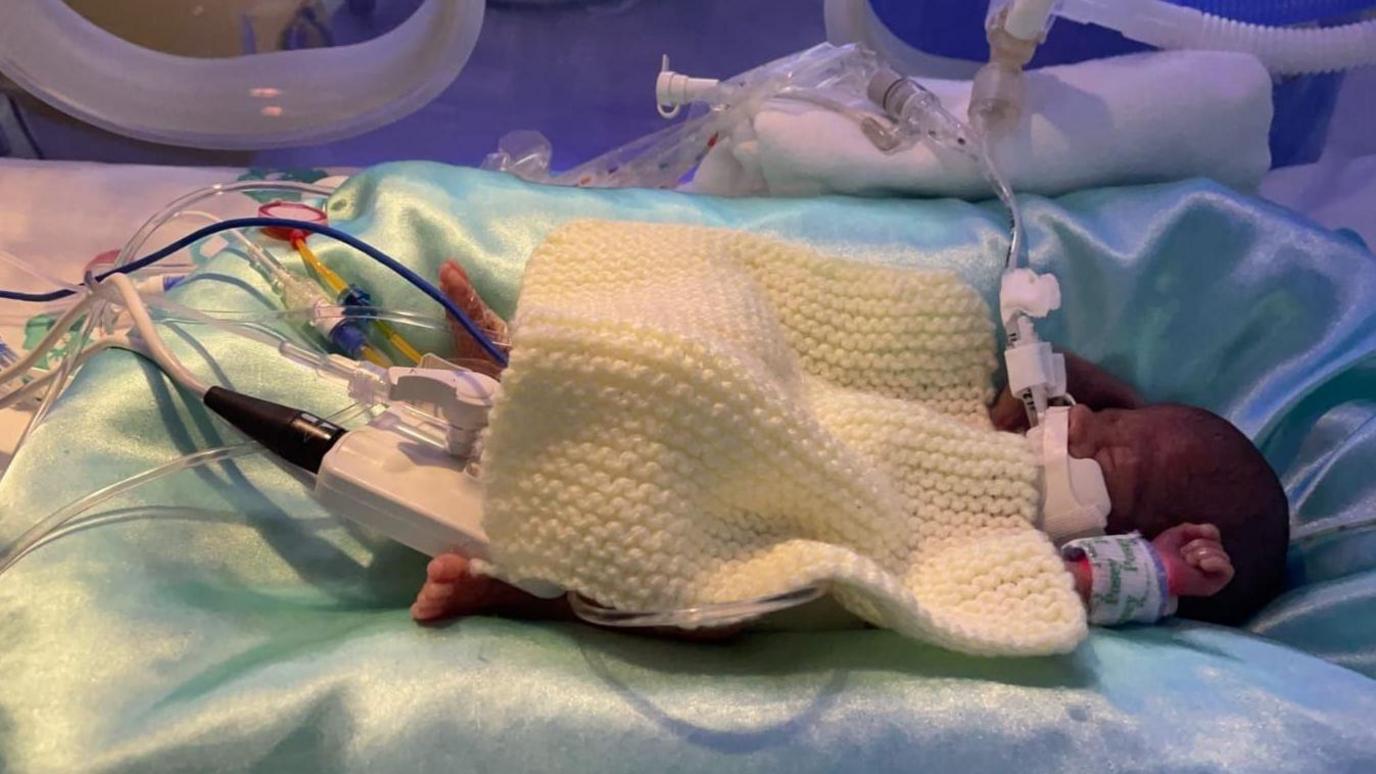
The family of a two-week-old boy who died have launched legal action against the NHS trust
The two babies were being cared for in the same room of the neonatal unit after they were born several months prematurely.
Both died from sepsis after they were infected by the drug-resistant superbug Klebsiella pneumoniae.
The trust's internal investigation report, seen by the BBC, concluded the spread of the bacteria - which was also passed to five other infants - "could have been prevented".
Staff in the neonatal unit were not “consistently” following hand hygiene guidelines at the time of the outbreak and “seemed unclear” about where and when personal protective equipment was required, the report said.
It also identified a "missed opportunity" to provide more appropriate treatment to the second baby who died.
The boy's mother told the BBC she felt "betrayed" by the hospital, which is facing a medical negligence claim from the family.
'Horrific'
Ms Shah said: "My heart goes out to those families that have lost their children. There are parents out grieving for their children, for deaths that could have been avoided.
"These were children in a neonatal unit which should have extra precautions.
"Those precautions were not taken and those deaths were actually avoidable. It's absolutely beyond horrific."

Bradford Royal Infirmary said it had improved its infection control measures
A nurse who previously worked at the hospital's neonatal intensive care unit has told the BBC staff were "overworked" and faced “extremely strenuous” conditions which led to “medical mistakes”.
After seeing the BBC's report, Ms Shah suggested "the culture" of the hospital needed to be looked at.
The MP added: "What measures will be put in place to make sure that this never happens again, that we do not have another grieving parent knowing that their child should still be alive?
"We are in Great Britain, we are not in a third world country where you cannot follow the basic hygiene of washing hands, of making sure you change your gloves, making sure those steps are in place, taking those basic steps."
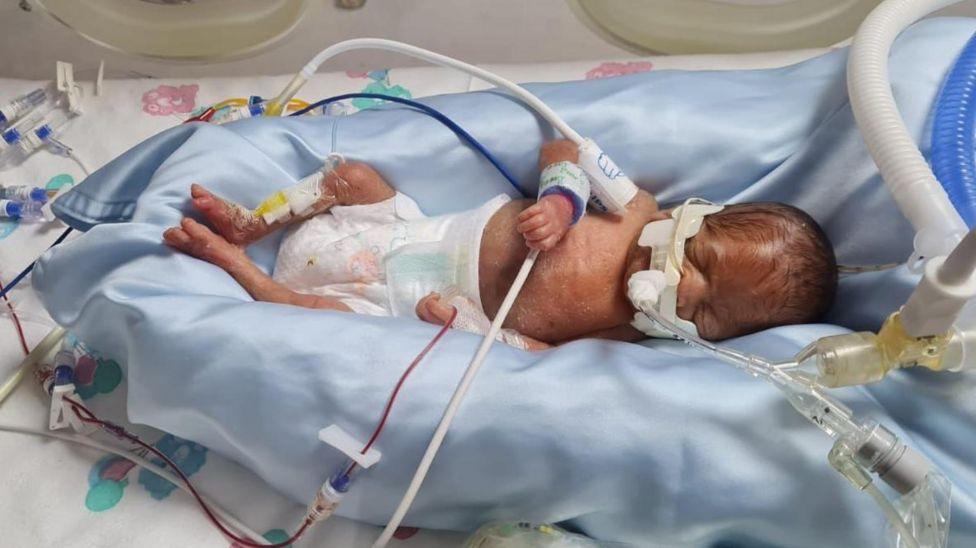
Baby Harris was infected with the drug-resistant bacteria Klebsiella pneumoniae
The NHS trust declined to respond directly to Ms Shah's criticism.
A spokesperson for the trust previously offered "sincere condolences to the families affected for their sad loss".
They said "additional infection prevention and control measures" had been put in place in the neonatal unit, while "staffing levels and training for neonatal nurses to provide intensive care" had been increased.
“A recent assurance review of our neonatal services carried out by NHS England concluded that the service provides safe, high-quality care," the spokesperson added.
A Department of Health and Social Care spokesperson said: “Our deepest sympathies are with the families affected in this tragic case.
“The government will deliver the biggest expansion of NHS staff in history with more doctors, nurses and midwives to deliver the quality, safe care patients and their families deserve.”
If you would like to share more information about this story with the BBC, you can contact sabbiyah.pervez@bbc.co.uk and chris.baynes@bbc.co.uk
Related topics
- Published16 July 2024
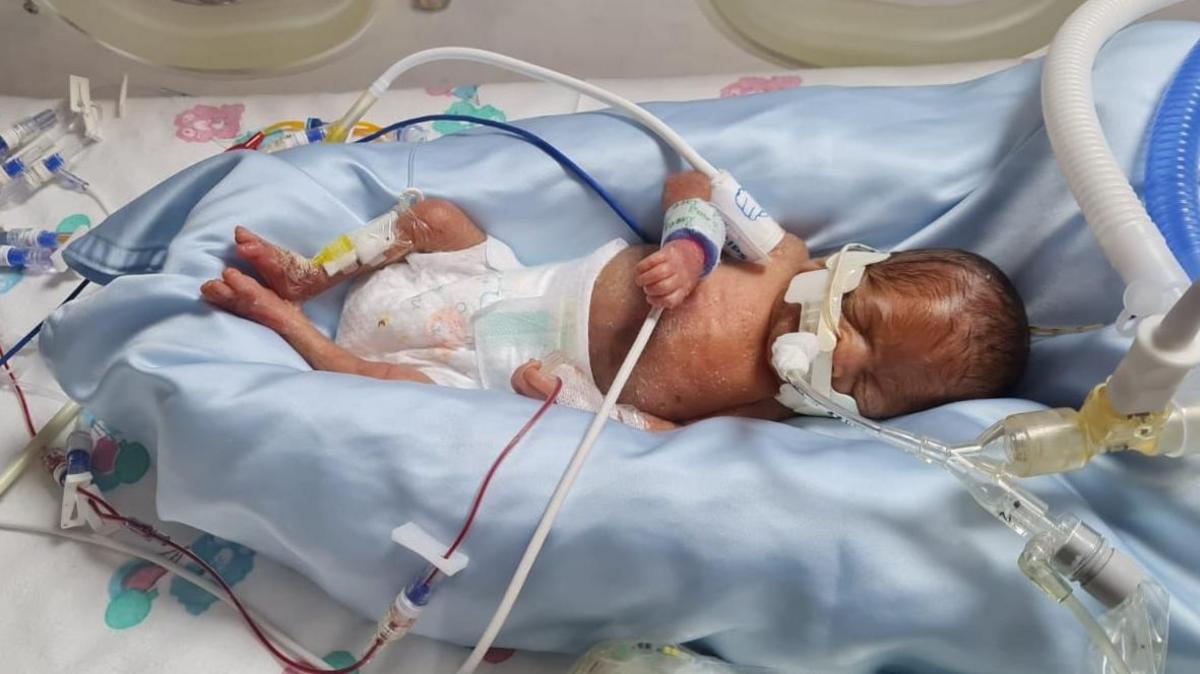
- Published26 May 2023
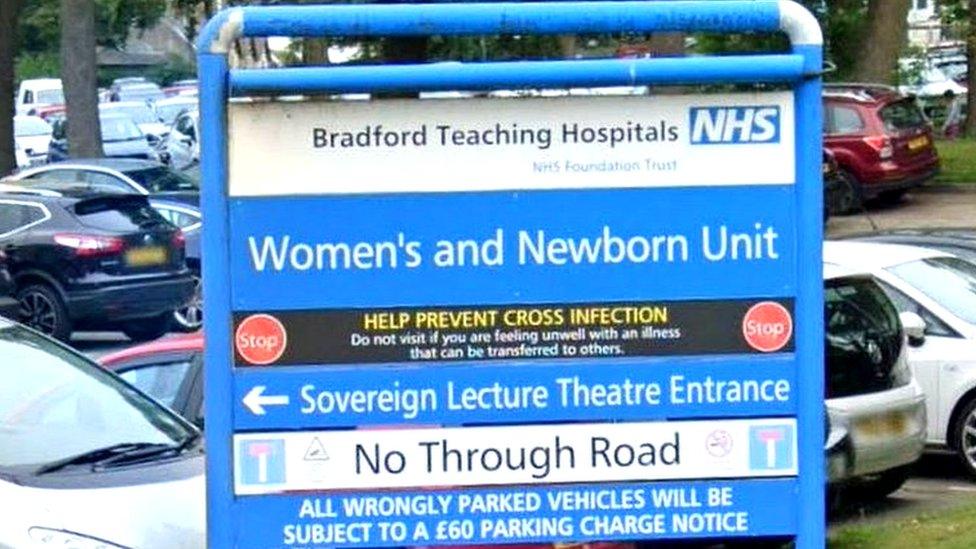
- Published16 May 2024